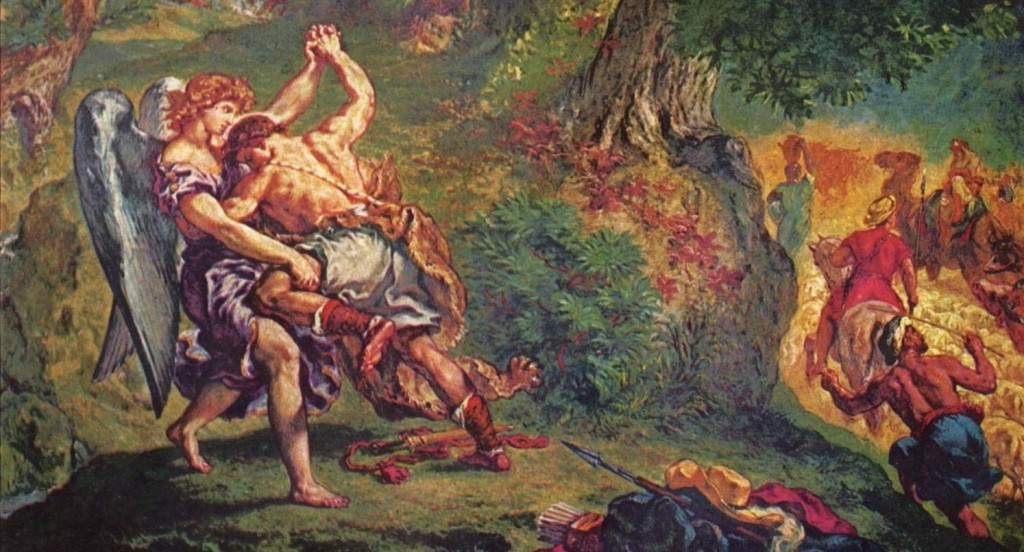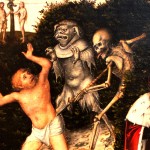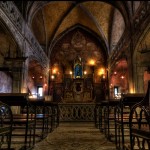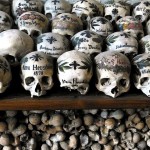
The whole faltering #IStandWithDouthat hashtag campaign has me thinking of the Catholic philosopher Alasdair MacIntyre, an ex-Marxist, once famously called called for a postliberal approach to thinking in his Whose Justice? Which Rationality?:
Liberalism is often successful in preempting the debate . . . so that [objections to it] appear to have become debates within liberalism. . . . So-called conservatism and so-called radicalism in these contemporary guises are in general mere stalking-horses for liberalism: The contemporary debates within modern political systems are almost exclusively between conservative liberals, liberal liberals, and radical liberals. There is little place in such political systems for the criticism of the system itself, that is, for putting liberalism in question.
The argument picks up on his After Virtue where MacIntyre argued that liberal philosophy, especially ethical thinking, is incoherent, because it takes categories from classical philosophy and theology and cobbles them together incoherently. What is needed, according to him, is postliberal thinking, thinking that goes beyond the meaningless frames that would divide us up into conservative-liberal and liberal-liberal camps.
It was a relief to see Fr. Barron make a postliberal intervention in the Douthat Battlefield with the piece Why It’s OK to be Against Heresy and for Imposing One’s Will on Others:
[Ross Douthat] concludes, “Absolute intolerance is always a sign of uncertainty and panic. Why do you have to hunt down everyone unless you’re weak? But what is the quality of a belief that exists simply because it’s enforced?” Not only is this narrow-minded aggression un-Catholic, it’s downright unpatriotic. “This is America. We don’t hunt heresies here. We welcome them,” [he] writes.
The problem here is a fundamental confusion between inclusiveness in regard to people and inclusiveness in regard to ideas. The church is indeed all-embracing in the measure that it wants to gather all people to itself. The Bernini colonnade that reaches out like welcoming arms in front of St. Peter’s Basilica in Rome is meant to carry precisely this symbolic valence. But the Church has never had such an attitude toward all ideologies and points of view. It has recognized, from the beginning, that certain doctrines are repugnant to its own essential nature, or contradictory to the revelation upon which the Church is constructed. This is precisely why, for the past two millennia, theologians, bishops, Popes and councils have consistently and strenuously battled heresies concerning central Catholic dogmas.
However, some time later Bishop Barron seemed to backpedal on his commitment to posliberalism when he penned the piece Maureen Dowd and the Catholic Academy:
Are all of [Maureen Dowd’s] opinions on the Synod debatable? Of course. Do I subscribe to everything [she] has said in this regard? No. But is [she] playing outside the rules of legitimate public discourse in such an egregious way that he ought to be censored? Absolutely not! Anyone even casually familiar with [Dowd] knows that [she] is exceptionally smart, articulate, careful in his expression, and a committed Catholic. So [she] has argued that divisions at least analogous to political factions have emerged at the Synod. From the Council of Jerusalem in the first century through Vatican II in the twentieth, the Church has been marked by conflict, rivalry, and faction. If you doubt me in regard to the first, take a good look at chapters eleven through fifteen of the Acts of the Apostles; and if you’re skeptical in regard to the second, peruse any two pages of Yves Congar’s massive diary of the Second Vatican Council. And while you’re at it, read John Henry Newman’s history of the Council of Nicea in the fourth century, or any treatment of the sixteenth century Council of Trent. When has the life of the Church not been susceptible to a political reading?
You might be surprised about these statements for superficial reasons. IT IS TRUE, FOR THE SAKE OF FULL DISCLOSURE, THAT I’VE SWITCHED THE NAMES OF MAUREEN DOWD AND ROSS DOUTHAT AS THEY APPEAR IN THE ORIGINALS. I put all that in caps so it’s clear what I’ve done.
But the switching of names is not the most disturbing thing here.
It is the backtracking on a robust postliberal position in conducting Church affairs by one of our leading churchmen. It is odd, because he also wrote a book entitled The Priority of Christ: Towards a Postliberal Catholicism. The blurb for it is music to my ears:
For a long time, Christians have tried to bridge the divide between Christianity and secular liberalism with philosophizing and theologizing. In The Priority of Christ, Father Robert Barron shows that the answer to this debate and the way to move forward lies in Jesus. Barron transcends the usual liberal/conservative or Protestant/Catholic divides with a postliberal Catholicism that brings the focus back on Jesus as revealed in the New Testament narratives. Barron’s classical Catholic postliberalism will be of interest to a broad audience including not only the academic community but also preachers and general readers interested in entering the dialogue between Catholicism and postliberalism.
What troubles me is that Bishop Barron is taking a liberal approach of tolerance (something Hauerwas argues is a total dead end) toward someone like Douthat who’s been fomenting, and there’s no other way to phrase it, contempt for the Francis papacy for several years now.
What’s even more troubling is how former postliberal allies of mine, Chad Pecknold in a conservative(-liberal)-Catholic manifesto in the National Review (the very publication that first encouraged mass Catholic dissent in the States) and Patrick Deneen (with whom I once did a critical interview about the conservative-liberal imagination) in an anonymous pseudo-satire letter to the NYT board in the Neo-Conservative publication First Things (SEE UPDATE ON THE FOLLOWING PAGE, along with partial retraction), have flashed their conservative-liberal fangs in defense of a cause as silly as Douthat’s ill-conceived crusade against the Pope.
Click here to continue reading . . .












